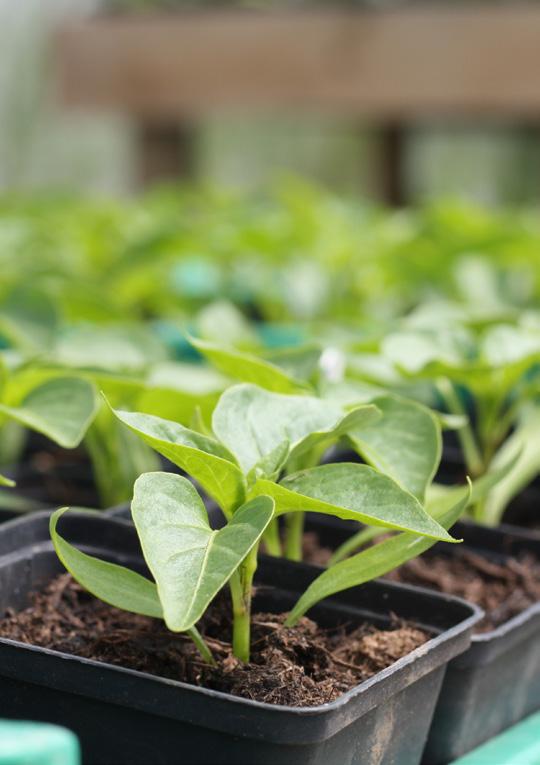
3 minute read
High stakes – how industrial meat is taking us to the tipping point
The global system of industrial agriculture fuels the climate emergency and destroys biodiversity. It erodes public health and denies the human rights of workers and communities.
The industrial meat economy – including the production of animal feed as well as the rearing and processing of livestock – is particularly to blame. By 2030, the livestock sector is expected to have spewed out almost half (49%) of the total quantity of greenhouse gases that human activity worldwide can emit from now on if global warming is to be restricted to the ambitious 1.5ºC target recognised as the safe maximum by the Paris Agreement. 1
The unrelenting expansion of commodity production into the forests of South America – notably of cattle and soya linked to the global meat industry – is a key driver of the climate, nature and health crises we are facing. Forest destruction is not only wiping out habitats and species but increasing the risk of reaching a catastrophic climate tipping point: scientists warn that by failing to reverse deforestation we are ‘playing an environmental Russian roulette’. 2 In the Amazon such a tipping point may be reached in less than 20 years, permanently changing regional weather patterns, turning the surviving rainforest into dry savannah and releasing billions of tonnes of carbon into the atmosphere. 3
The global meat industry is also gambling with our health: an ever-increasing number of scientific reports confirm a connection between emerging infectious diseases and environmental destruction, pointing to its potential to let loose a huge reservoir of pathogens. The majority of emerging infectious diseases originated in animals – primarily wild species – and our continuing destruction of ecosystems and habitats is increasing our exposure to these diseases and encouraging their spread. 4
Brazil is one of the world’s largest producers of beef and soya. But the country’s agribusiness agenda – which serves the global meat industry – exacts a heavy toll of human misery. Indigenous and other Amazon communities have long borne the brunt as their lands are expropriated and the forest cleared for agriculture. Even as deforestation goes on increasing, the government of President Jair Bolsonaro appears to see the current chaos of the global pandemic as an opportunity to further strip away these communities’ rights and such protection as the forest has. 5 Moreover, Amazon communities – who are particularly at risk from Covid-19 due to their culture of community living and limited access to health care – are at risk of being made yet more vulnerable to the disease by exposure to smoke from the fires that ranchers set on a massive scale to clear newly felled forest. 6
Others who suffer at the hands of the country’s agribusiness model include the forced labourers on cattle ranches 7 and the migrant and temporary workers who live in cramped communal housing and work in crowded conditions in meat processing facilities. 8
Indeed, the outbreaks of Covid-19 at meat processing plants around the world have made the meat industry a global health liability, with one industry expert stating that workers are treated as being ‘as expendable as the things they’re slaughtering’. 9
But this is not just about Brazilian beef. Industrial meat production swallows up the overwhelming majority of the vast amounts of soya exported from South America each year, whose production is a leading driver of ecosystem conversion. 10 A report published in Science in July 2020 revealed that about one-fifth of soya exports to the EU from the Brazilian Amazon and the Cerrado biome were likely contaminated with illegal deforestation. 11
The global meat industry not only fuels the destruction of the Amazon and other natural ecosystems with its demand for feed and grazing, but – as this report outlines – pollutes our air and water, threatens public health through its reckless overuse of antibiotics, exploits and endangers its workforce (particularly those in meat processing plants) and drives small farmers out of business, undermining rural communities. Moreover, the meat-heavy diets that the sector promotes and on which it depends for its existence also imperil health, being associated with increased risk of heart disease, stroke, diabetes and colorectal cancer. 12
Even those that lack direct links with cattle supplies from the Amazon may be trading with corporate groups who are directly linked. The sheer demand for industrial meat and the feed used to rear the animals drives the sector’s environmental and social impacts. It is therefore critical that importing countries use their trade might and purchasing power in the public interest. The global meat industry is not only sacrificing people’s lives today, but also sacrificing our future.










